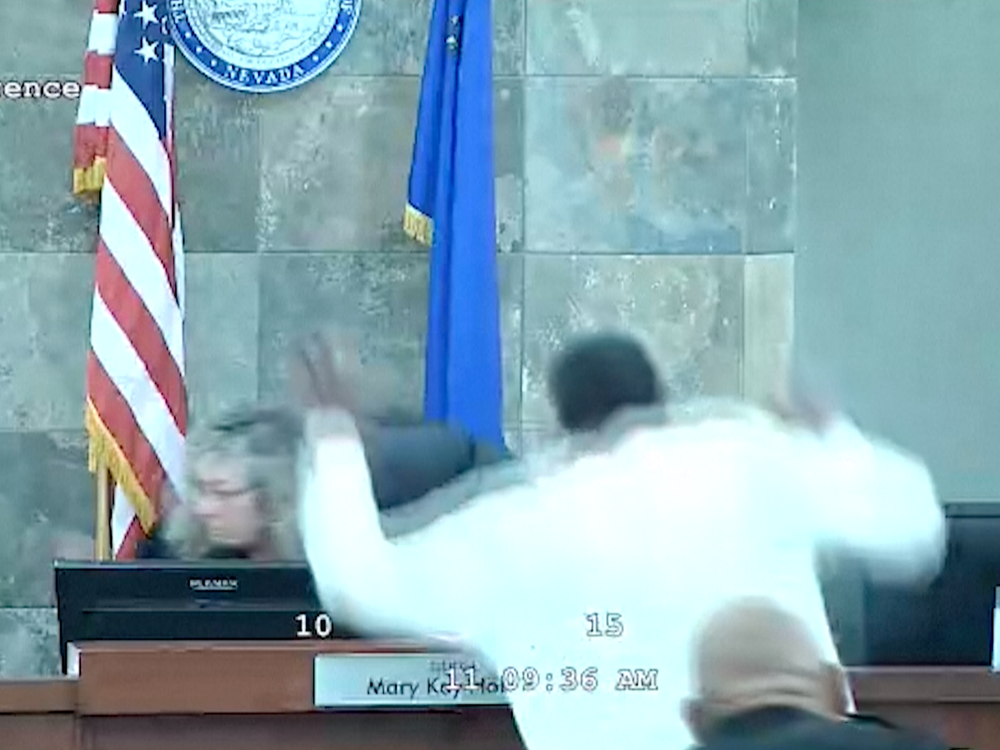Section Branding
Header Content
A recent attack on a Las Vegas judge is very disturbing. But such cases are uncommon
Primary Content
A courtroom proceeding took a violent turn when a man attacked a Las Vegas judge on Wednesday morning. Video shows when 30-year-old defendant Deobra Redden runs and leaps toward Judge Mary Kay Holthus as she tries to scramble away.
Holthus was about to announce Redden's sentence in a felony battery case.
The judge was injured but not hospitalized. A marshal who intervened was hospitalized but remains in stable condition.
Video of the physical assault has been viewed nearly 70 million times on social media and is disturbing.
Perhaps it's all the more shocking because such attacks in court tend to be rare, experts say. One notable case involved a Mississippi judge, Aubrey Rimes. In 2021, a defendant in a domestic violence charge was being escorted out of the courtroom when he attempted to attack Rimes.
But the majority of such acts against judges occur outside the courthouse.
Most courtrooms have heavy security and defendants are often shackled or handcuffed, explains James T. Richardson, a professor of sociology and judicial studies at the University of Nevada, Reno.
In 2021, there were more than 4,500 threats and other potentially dangerous interactions toward judges, according to the U.S. Marshals Service, which protects federal judges, among other duties. Since 1979, four federal judges have been murdered.
"Family court judges are more prone to experience threats or violence mainly because they are dealing with highly emotional family matters such as child custody and claims of domestic violence," says Richardson.
A few months ago, a Maryland circuit court judge was shot in front of his own home, and died later in the hospital from injuries.
"Being a judge is a very trying occupation, and it takes its toll on many judges," Richardson continues.
For people who attack a judge, there can be additional charges. In Nevada, the penalty for contempt of court, for instance, is a maximum fine of $500 and/or imprisonment not exceeding 25 days, says Justin Iverson, research librarian and assistant professor at the William S. Boyd School of Law at the University of Nevada, Las Vegas.
Copyright 2024 NPR. To see more, visit https://www.npr.org.
Bottom Content

